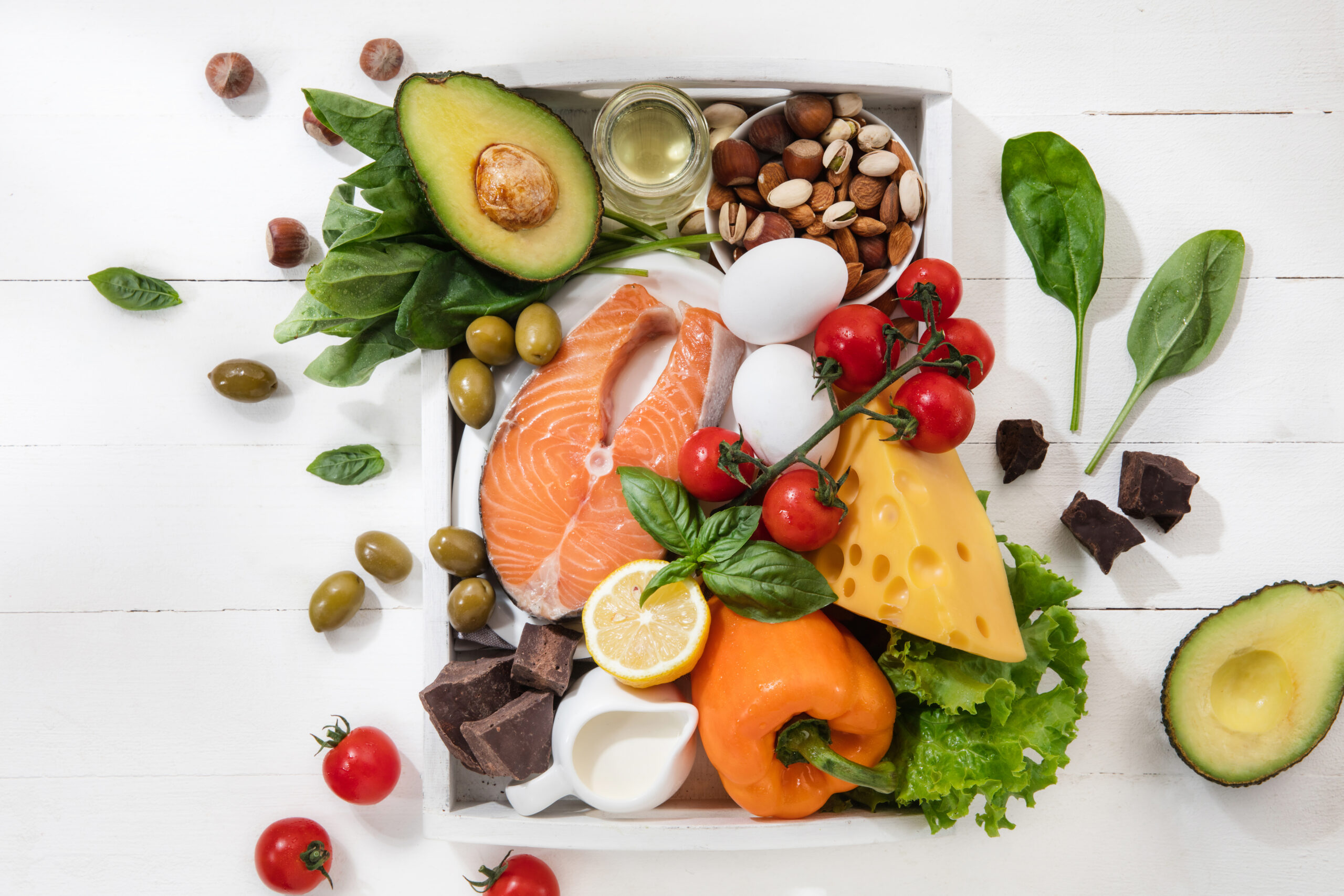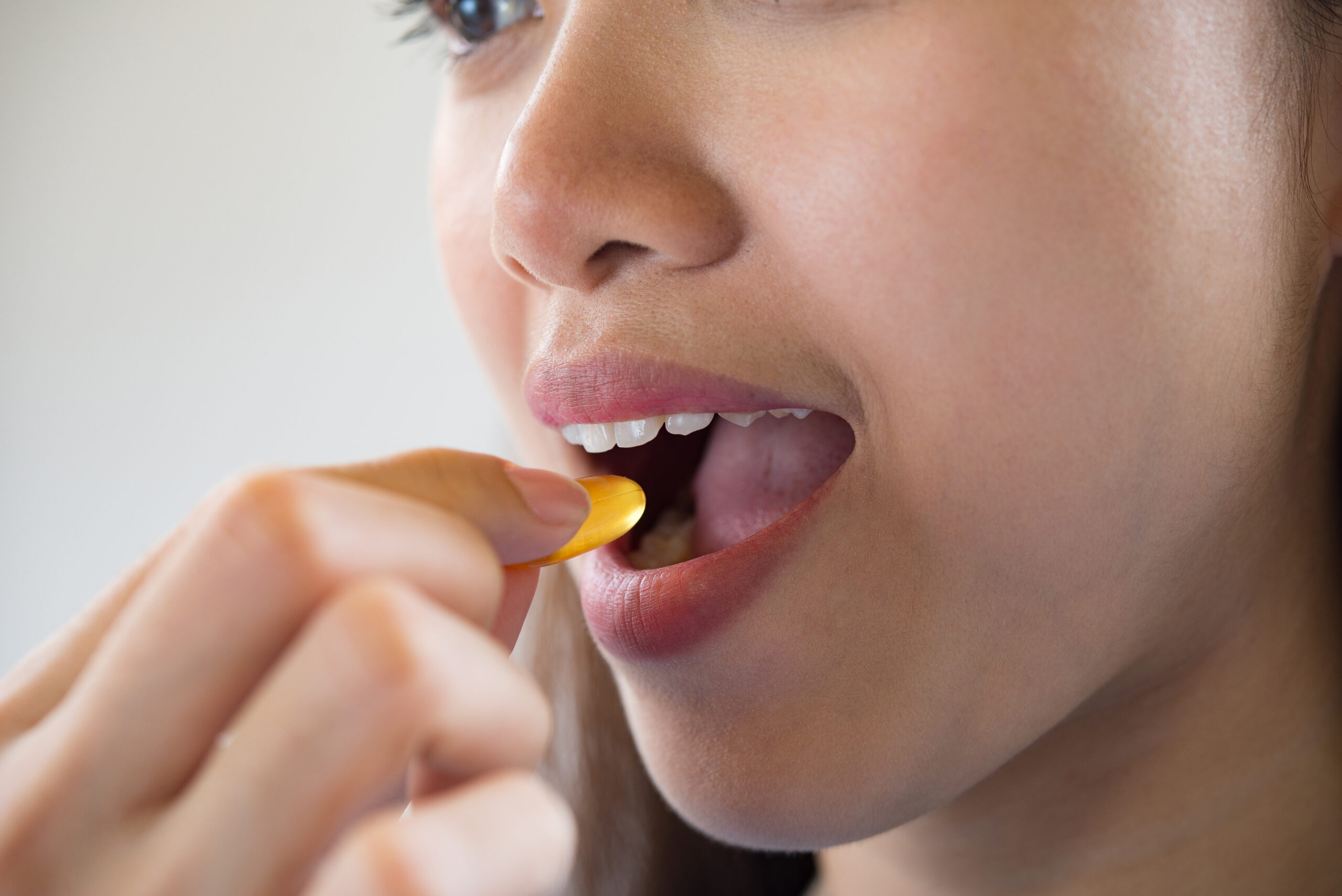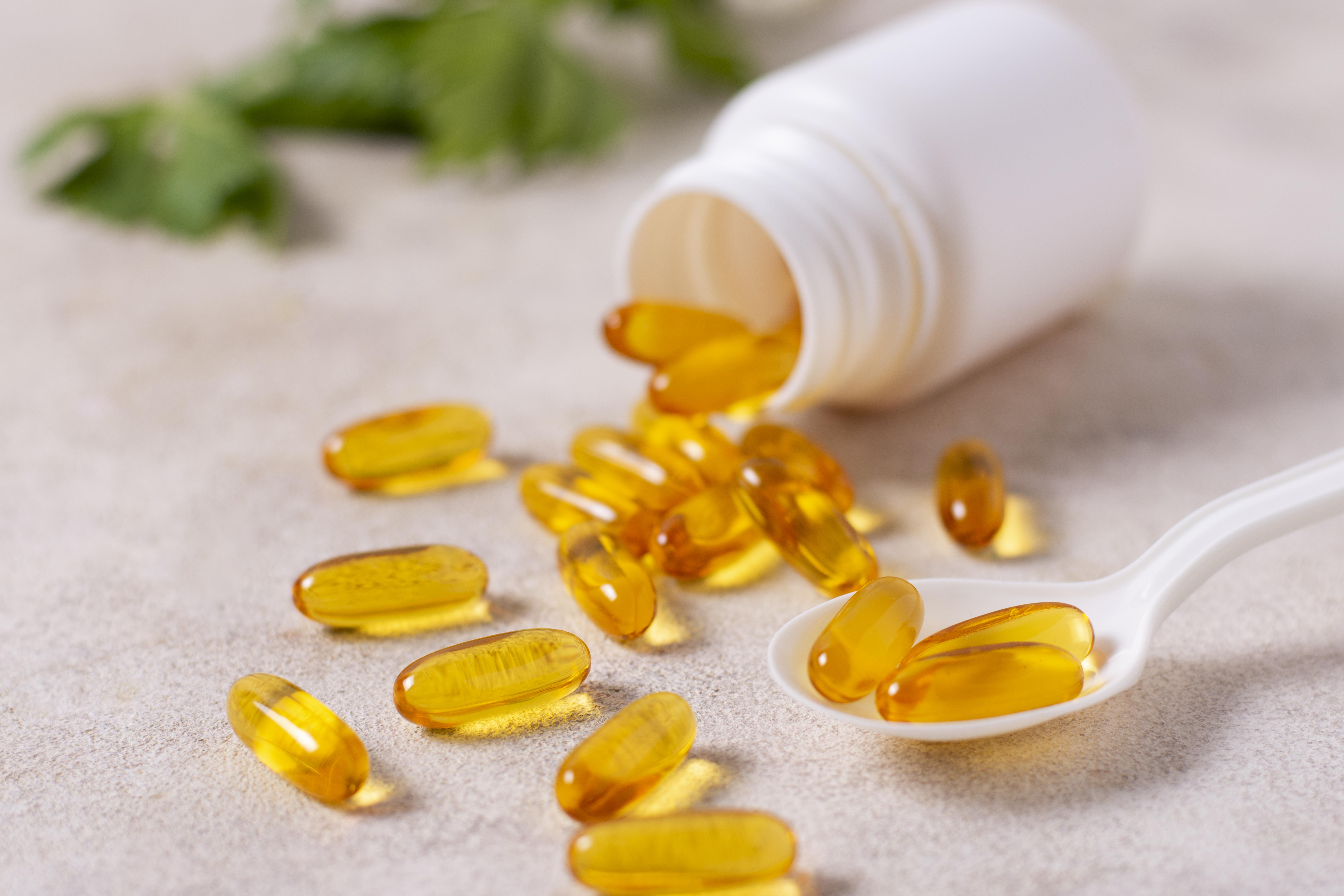Did you know that Biotin, also called vitamin H or vitamin B7, is a crucial component of supplements that promote hair growth and enhance the condition of skin and nails? In addition, Biotin is involved in several other essential bodily processes. Learn what vitamin B7 is and what its properties are. What products are rich in this vitamin?
Biotin is a B vitamin that is essential for proper bodily function. It is also known as vitamin B7 or vitamin H, although the latter name is not as commonly used. Like other B vitamins, Biotin is water-soluble and acts as a coenzyme in various chemical processes within the body.
Biotin plays a significant role in the body as it is required for the proper functioning of many enzymes involved in metabolic reactions, including the metabolism of fats and amino acids. It is also essential in the energy production process and gluconeogenesis. Additionally, Biotin is a component of enzymes that facilitate the carboxylation reaction, contributing to synthesizing nucleic acids and nucleotides.
Consequently, in the case of biotin deficiency, specific symptoms and disorders may develop related to the abnormal course of specific biochemical changes. However, vitamin B7 deficiencies are pretty rare. Most often, they can be observed in patients with significant malnutrition resulting from other disease entities. In addition, the cause of biotin deficiency may be selective insufficient consumption of protein products. In the case of chronic use of drugs from certain groups and some antibiotics, it may lead to the development of disorders leading to biotin deficiency.
Biotin is a vital vitamin that our body needs to function correctly. Like most B vitamins, it is closely related primarily to the structure and functioning of the skin, hair, and nails. Biotin contains sulfur molecules essential for keratin production, an important component of hair, skin, and nails.
Vitamin B7 has benefits for both nails and skin. It can strengthen the nail plate, reducing the likelihood of breaking or splitting. Additionally, Biotin can aid in improving skin conditions. It strengthens hair structure and helps prevent excessive hair loss, but only if it is due to a vitamin B7 deficiency.
Biotin is a compound that is also involved in the formation of prothrombin, which in turn is a significant element in the blood coagulation process. Also, it is worth remembering that vitamin B7 has a relatively stable structure (although it dissolves in acidic solutions) and is sensitive to UV radiation and temperature changes.
Biotin is commonly known for its ability to improve the health of the skin, hair, and nails. Vitamin B7 contains sulfur molecules. They are necessary for properly synthesizing keratin, which is one of the main building blocks of nails and hair. Thanks to this, it is possible to avoid excessive hair brittleness, and the nail plates are strong and do not crumble. In addition, Biotin has a positive effect on reducing hair loss and improving skin condition.
Prothrombin synthesis also requires the presence of vitamin B7. It is a chemical compound that is involved in blood clotting processes. In the case of its deficiencies, an excessive tendency to bruise and prolonged bleeding time after an injury may occur. There are also reports that Biotin determines the proper functioning of the thyroid gland and positively affects the concentration of glucose and certain fatty compounds in the blood.
Other functions of vitamin B7 include:
Biotin, an organic compound, is present in various food groups, including plant and animal products. The greatest sources of vitamin B7 in food are:
Vegetables and fruits that are also good sources of Biotin are:
In addition, if you want to increase biotin levels in your body, it is worth eating products based on soy and wholegrain flour, dairy products, sunflower seeds, brown rice, mushrooms, soybeans, and bran.

Moreover, eggs are worth paying attention to because the white of a hen's egg contains avidin, an antivitamin that hinders the absorption of vitamin B7 in the digestive tract. However, when eggs are cooked, avidin is denatured and loses its biotin-binding properties, making it bioavailable. To increase biotin absorption, it is recommended to supplement with other B vitamins (known as B-complex), magnesium, and manganese.
If you suspect a vitamin B7 deficiency, it is worth consulting a specialist who will determine the appropriate action plan. Most people only take Biotin from food, but supplementation may sometimes be considered.
Because our source of vitamin B7 is a variety of food products we eat daily, its deficiency in the body is relatively rare, especially among people using a balanced diet. It is important to keep in mind that various factors can cause a decrease in the body's biotin levels. These factors include enteral nutrition, dialysis, alcoholism, high levels of steroid hormones, and certain antibiotics or anticonvulsants.
Vitamin B7 deficiency is easy to spot. The symptoms that appear then primarily concern the skin (like skin inflammation, psoriasis, lichen planus, and seborrheic changes), as well as:
It's significant to keep in mind that pregnant women![]() who have low levels of Biotin in their bodies may be at risk of developmental delays or inhibited development of their child. Therefore, immediate action and visiting a specialist are recommended.
who have low levels of Biotin in their bodies may be at risk of developmental delays or inhibited development of their child. Therefore, immediate action and visiting a specialist are recommended.
Having an excess of Biotin in our body is generally not concerning since this vitamin is eliminated through urine. As a result, it is unlikely to experience a vitamin B7 overdose. Nonetheless, if we take excessive biotin supplements for an extended period, we may experience side effects such as recurring abdominal pain, nausea, diarrhea, vomiting, and mood changes.
So far, specific recommendations regarding the daily intake of vitamin B7 preparations have not been developed. However, it is assumed that the daily dose![]() for an adult should be 30 to 100 µg. Moreover, due to the lack of confirmed toxicity of vitamin H, which dissolves in water and removes its excess from the body with urine, a safe daily dose of Biotin for a human may be up to 200 mg.
for an adult should be 30 to 100 µg. Moreover, due to the lack of confirmed toxicity of vitamin H, which dissolves in water and removes its excess from the body with urine, a safe daily dose of Biotin for a human may be up to 200 mg.

If you have a risk of vitamin B7 deficiency or have experienced its symptoms, we recommend taking biotin preparations. People with biotin deficiency often require a larger dosage of medicinal products containing vitamin B7 than the daily requirement. If you want to improve your overall health, taking dietary supplements with Biotin can help.
It's important to remember that the supplementation period should last at least three months for the effects of using preparations with vitamin B7 to be visible. After six months, it's advisable to take a monthly break from Biotin or reduce the dose of the used preparation.
What's more, people who want to take care of the better condition of their hair can include cosmetics with Biotin in their daily care, including shampoos, masks, and conditioners containing vitamin H.
Biotin supplements are usually available as tablets. Natural vitamin B7 tablets contain the right amount of Biotin that compensates for deficiencies. In this form, absorption is the highest because vitamin B7 is absorbed in the small intestine.
When taking a biotin supplement, consuming it with water is significant. It's also crucial to be mindful of the composition and amounts of any other dietary supplements you may be taking. Remember not to surpass the recommended doses for any supplement. Although there is no risk of “overdosing” vitamin B7, take it as directed.

There are no specific arrangements on this topic. Please read the recommendations of the given dietary supplement that you are taking. However, many sources say that the full spectrum of effects of vitamin H should appear after a few months – usually from three to six. After this or a similar period, you can take a break or reduce the daily doses of the preparation for several weeks.
Using Biotin with other B vitamins is justifiable, as they all impact each other's effects. Biotin combines with other mineral elements, including magnesium, manganese, silicon, zinc, and selenium.
There are several substances that interact![]() with Biotin. Anticonvulsants, steroid hormones, and alcohol may cause a decrease in the level of Biotin in the blood. Raw egg white
with Biotin. Anticonvulsants, steroid hormones, and alcohol may cause a decrease in the level of Biotin in the blood. Raw egg white![]() binds vitamin B7 and inactivates it, so it cannot be eaten together with Biotin.
binds vitamin B7 and inactivates it, so it cannot be eaten together with Biotin.
When testing for vitamin B7 deficiency, doctors usually conduct blood and urine tests to examine the levels of Biotin. In laboratory diagnostics, blood tests![]() are frequently employed for this purpose.
are frequently employed for this purpose.
However, according to the scientific literature, the best indicators used to assess vitamin B7 levels in the body are the level of biotin excretion in the urine and the level of 3-hydroxy isovaleric acid excretion.
The occurrence of vitamin B7 interference during diagnostic tests![]() depends on several factors: the construction of the test, the amount of biotin dose taken by the patient, the concentration of Biotin in the blood, and above all, the time that elapses between the last dose taken by the patient and the collection of material for testing.
depends on several factors: the construction of the test, the amount of biotin dose taken by the patient, the concentration of Biotin in the blood, and above all, the time that elapses between the last dose taken by the patient and the collection of material for testing.
In certain immunochemical tests that use the SA/B system with vitamin B7, there is a risk of obtaining inaccurate hormone concentration results that are either too low or too high due to biotin interference. Immunoassays typically use two types of methods: non-competitive and competitive.
Tests that do not involve competition are utilized to gauge the levels of giant hormone molecules such as TSH, luteinizing hormone, follicle-stimulating hormone, chorionic, parathyroid hormone, insulin-like growth factor, insulin, and thyroglobulin. However, this biotin-sensitive testing could lead to incorrect negative hormone readings, indicating decreased hormone levels.
Competitive tests are used to determine the concentration of small hormone molecules and antibodies: thyroxine (T4/fT4), triiodothyronine (T3/fT3), vitamin D3 (25(OH)D), steroid hormones, antibodies against the TSH receptor (TRAb, TSH receptor autoantibody), against thyroperoxidase (anti-TPO) and thyroglobulin (anti-Tg). In this type of test, false positive (inflated) concentration/titer results of the tested hormones and antibodies are observed.
Already in 2016, the guidelines of the American Thyroid Association pointed out that the use of vitamin B7 preparations may impact the results of hormonal tests. American researchers have observed that people using biotin supplementation often have distorted results from hormonal tests.
Higher doses of vitamin H, as a result of interference occurring during the determination of hormone concentrations![]() , may be the source of lowered TSH results and overestimated values of peripheral hormones (FT4, FT3), and thus may lead to inappropriate therapeutic decisions.
, may be the source of lowered TSH results and overestimated values of peripheral hormones (FT4, FT3), and thus may lead to inappropriate therapeutic decisions.
Several publications that have appeared in recent years have shown that the use of high doses of vitamin B7 may erroneously suggest the existence of hyperthyroidism or indicate that too high a dose of hormones is used in the supplementation of primary hypothyroidism.
To ensure accurate results that reflect our hormone levels, it's crucial to stop taking vitamin B7 supplements before getting tested![]() for TSH, FT4, or FT3. Experts suggest discontinuing biotin supplements ideally 2-7 days before testing. Although TSH and fT4 levels typically return to normal within 24-48 hours after discontinuing Biotin, abnormal antibody levels can persist for up to 7 days after the last dose.
for TSH, FT4, or FT3. Experts suggest discontinuing biotin supplements ideally 2-7 days before testing. Although TSH and fT4 levels typically return to normal within 24-48 hours after discontinuing Biotin, abnormal antibody levels can persist for up to 7 days after the last dose.